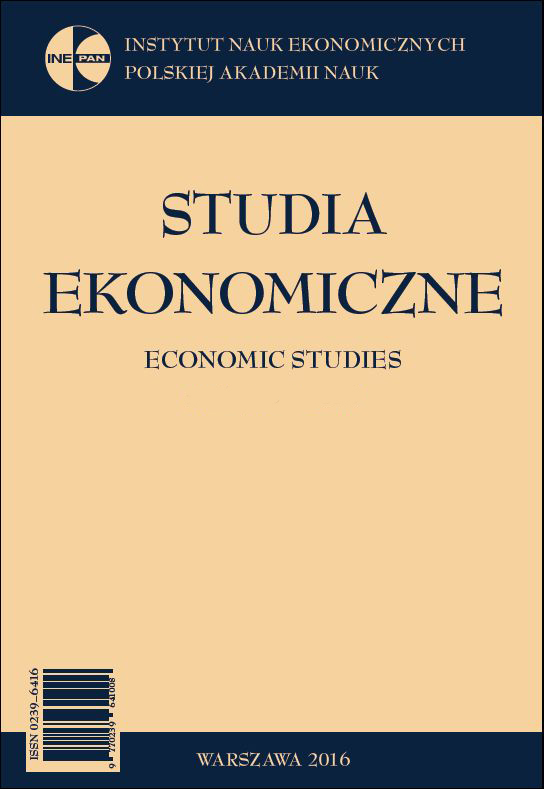Źródła niskiej efektywności proinnowacyjnej pomocy z Unii Europejskiej
Sources of Low Effectiveness of Proinnovative Aid From the European Union
Author(s): Joanna Kotowicz-JaworSubject(s): Economy, Micro-Economics
Published by: Instytut Nauk Ekonomicznych Polskiej Akademii Nauk
Keywords: innovations; stage of development; institutions; transition barriers; National Innovation System
Summary/Abstract: The main objective of this paper is to examine the influence of the EU cohesion policy in the years 2004–2015 on the innovation capacity of the Polish economy. It is found that while this policy positively influences the main macroeconomic indicators, it lacks effective impact on the innovation activity of Polish enterprises. The thesis formulated in the paper is that the main reason for unsatisfactory innovation results of big transfer of European structural funds is the transitional stage of economic development between the investment and innovation phases. The paper identifies the main internal barriers to this transition, identified on the basis of the institutional and endogenous economic theory. These are the following: a lack of institutional infrastructure appropriate for the knowledge economy, shortage of regulation transparency and permanent instability of enterprises’ institutional setting. Such barriers augment the investment risk and shorten their development strategy horizon. Other important barriers are the high transaction costs, immaturity of social capital (lack of trust in market ners), low quality of human capital, conservative development financing structure, disadvantages of EU structural funds allocation system, and the demand structure in the transition stage slowing down innovative capacity of enterprises. The main recommendation oriented at weakening the above barriers is the creation of the proper National Innovation System, assuring the effective interactions between 3 their main pillars: the research and education sector, enterprises, and the institutional system. Interactions between institutions, knowledge and technology create convenient conditions for the growth of creativity, which accelerates innovations on the micro, mezo and macroeconomic level.
Journal: Studia Ekonomiczne
- Issue Year: 2017
- Issue No: 2
- Page Range: 149-161
- Page Count: 13
- Language: Polish

